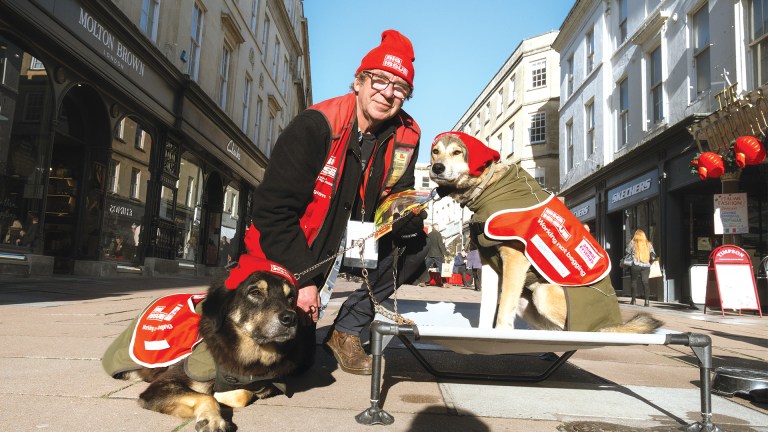“It’s indefensible that four out of five are not active enough to be healthy and the barriers stopping them, like inaccessible exercise venues or a lack of trained coaching staff, are completely unacceptable.
“What we are seeing is quite simply mass disability neglect at a time we are focused on elite disability sport. As we’re gearing up for the Paralympics, it would appear that authorities are pretending to care without a strategy to ensure that sport is truly for all.”
Inaccessible venues and transportation, and a lack of trained staff, were highlighted as significant barriers by nearly a third of people.
More than a quarter (26%) of disabled people said a lack of information on inclusive sport opportunities was a reason for their lack of engagement in sport.
Whyte said: “Simple changes, like training staff, fitting ramps or improving transport, could have a profoundly positive effect on disabled people’s physical health and resistance to illnesses like heart disease, cancer, diabetes and stroke.
“There are huge mental, emotional and social health benefits too, leading to improved quality of life. And by reducing pressure and costs to the NHS and social care, the whole of society will benefit.”
Advertising helps fund Big Issue’s mission to end poverty
Further research from Plan UK has found that nearly one in three (28%) of girls and women with a disability never or rarely feel they fit in when playing sport.
Kathleen Spencer Chapman, director of influencing and external affairs at Plan International UK, says: “It’s deeply disappointing that disabled girls and young women still feel out of place in sports.
“While barriers exist for all girls, they are sadly higher for disabled girls – whether physical challenges, social barriers like prejudice and stereotyping, or a lack of accessible facilities and activities available.
“Every girl deserves an inclusive environment where they feel welcome, empowered and free to enjoy any sport they choose.
“Many of today’s Paralympians started in grassroots sports. To ensure future success, disabled girls must be actively included in decision-making about the sports facilities and activities designed for them, and the government and providers should ensure local facilities are fully accessible.”
The survey also found that 40% of disabled girls and young women in the UK always or sometimes feel unwelcome when watching sport with others, whether on TV or with a live crowd.
Advertising helps fund Big Issue’s mission to end poverty
The Sense Active programme, funded by a £2.2m grant from Sport England, will support 5,000 more people with complex disabilities to be active by the end of 2027.
Sense has redesigned traditional sports, including badminton, tennis and football, so people with complex disabilities can meaningfully participate in them for the first time. It is also training 1,000 coaches to help make physical activity accessible to all.
Alissa Ayling, head of Sense Active, the charity’s sport and physical activity programme, said: “Sense wants everyone to have the chance to be active in a way that’s meaningful for them and we see on a daily basis how much that can boost people’s physical and mental wellbeing.
“That so many people are getting less exercise than they need to be healthy is incredibly disappointing, but sadly not surprising. There’s a lot of work to be done to ensure being active really is for everyone.
“Disabled people experience many barriers to exercising, from inaccessible sports venues and transport to a lack of an upskilled workforce and closures of local facilities. But if there’s enough determination to break down the barriers, it will happen.”
Do you have a story to tell or opinions to share about this? Get in touch and tell us more. Big Issue exists to give homeless and marginalised people the opportunity to earn an income. To support our work buy a copy of the magazine or get the app from the App Store or Google Play.
Advertising helps fund Big Issue’s mission to end poverty










